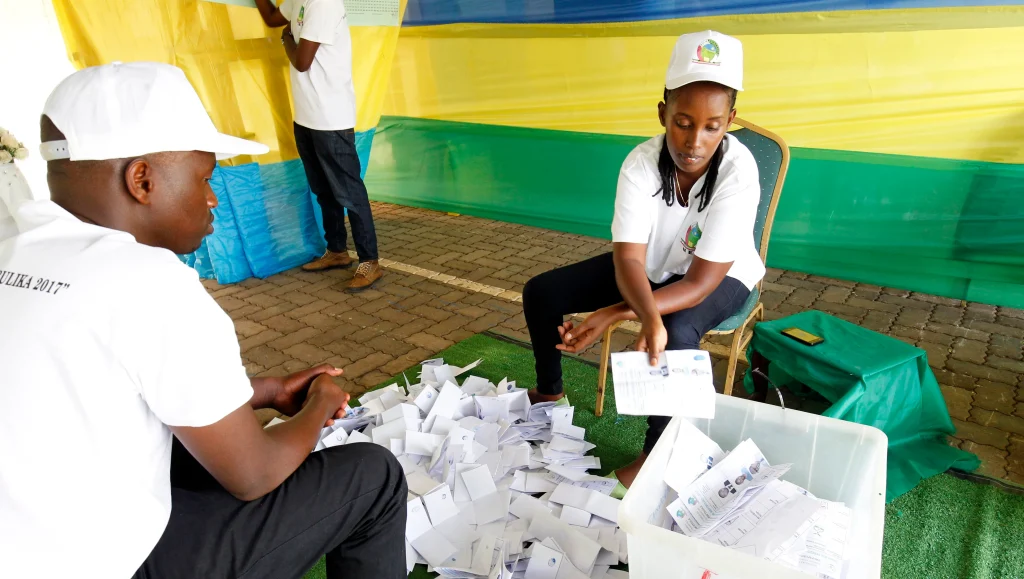On Tuesday, a Rwandan court dismissed an appeal by a prominent opposition figure to overturn his previous convictions, effectively barring him from running against President Paul Kagame in the upcoming July elections.
Bernard Ntaganda, 55, a vocal critic of Rwanda’s leader, filed a petition with the High Court in Kigali in February seeking to overturn over a decade of convictions.
Ntaganda had also planned to stand against Kagame in 2010 but was detained before the elections. He went on to serve a four-year prison term on charges of threatening state security and stoking ethnic divisions before being set free in 2014.
He is the second opposition figure barred from running in the July 15 polls against Kagame. In March, a court declined to set aside previous convictions against another Kagame opponent, Victoire Ingabire, rendering her ineligible to run in July.
The judges ruled that Ntaganda failed to pay court fees of almost 106,000 Rwandan francs ($82) related to the previous case against him.
“The High Court finds that Ntaganda did not abide by the laws that require individuals to request their conviction to be removed, and therefore rejects his appeal,” the court ruling said.
“The ruling RPF (Rwandan Patriotic Front) cannot allow the courts to be independent,” he told AFP.
Under Rwandan law, anyone convicted and sentenced to a jail term of over six months is banned from holding any public office.
Kagame, 66, has been the de facto leader of the tiny landlocked nation since the 1994 genocide, formally becoming president of a transitional government in 2000.
Since then, he won elections in 2003, 2010, and 2017, with more than 90 per cent of the votes, and he is widely expected to win the July elections.
Kagame has been lauded for steering Rwanda towards economic transformation following the genocide. However, he often faces criticism for human rights violations, suppressing opposition voices and free expression.

